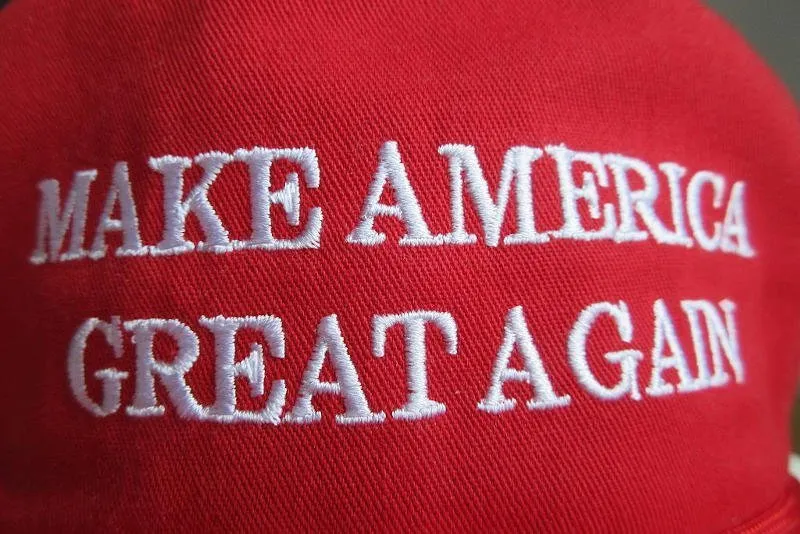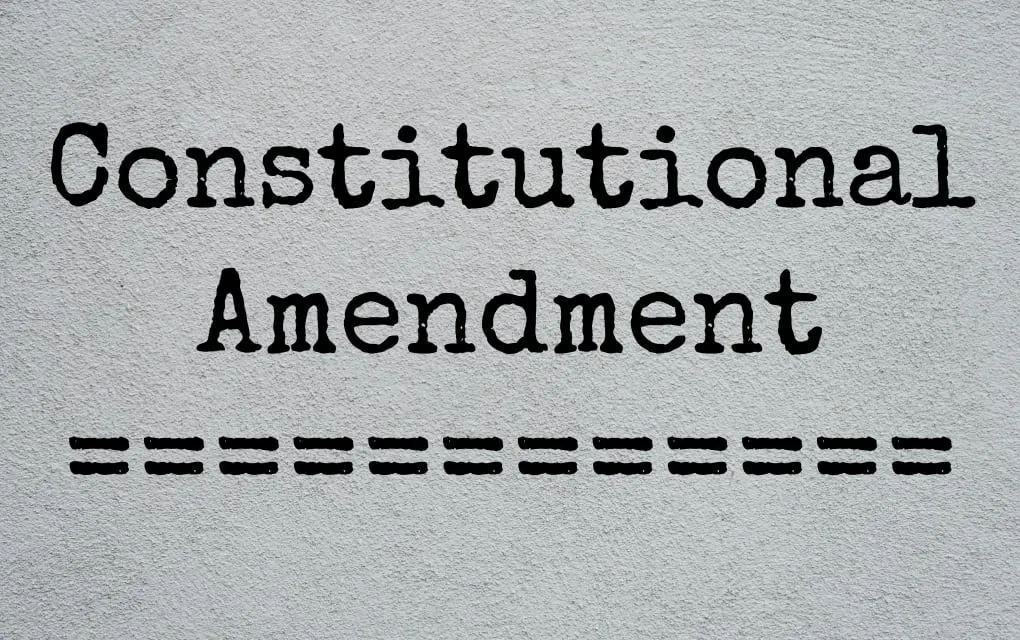By BERRY CRAIG
“The labor-hater and labor-baiter is virtually always a twin-headed creature spewing anti-Negro epithets from one mouth and anti-labor propaganda from the other mouth,” Dr. Martin Luther King Jr. told the 1961 AFL-CIO convention.
If King were alive today, he would have added “LGBTQ-hater,” according to Murray State University historian Brian Clardy.
“Different doesn’t mean deficient,” Clardy paraphrased the Rev. Jeremiah Wright. “Making it a crime to be different from the ‘norm’ opens the door for the persecution — even the killing — of persons who are ‘different,’” he warned.
Think Clardy is exaggerating? “For the good of society ... transgenderism must be eradicated from public life entirely,” said far-right commentator Michael Knowles at this year's Conservative Political Action Conference.
Adolf Hitler and the Nazis are most infamous for the systematic murder of six million Jews. (Antisemitism is also rising in the U.S.)
But Hitler and the Nazis also criminalized homosexuality and persecuted gay men. Thousands were thrown into concentration camps and forced to wear pink triangles on their prison uniforms that identified them as homosexuals. “Racism, antisemitism, homophobia, toxic masculinity, and militarism all come from the same source,” Clardy added.
So does union-hating. Germany’s powerful unions were bastions of anti-Hitler sentiment. As soon as Hitler came to power in 1933, he crushed the unions, murdering and imprisoning many labor leaders.
It is no coincidence that virtually all anti-LGBTQ, Only-White-Lives-Matter MAGA Republicans are anti-union, too.
Several MAGA-majority state legislatures, including the Kentucky General Assembly, are pushing and passing anti-LGBTQ bills and anti-labor bills. The Bluegrass State anti-LGBTQ legislation mainly targets transgender persons, the hard-right’s current demons du jour. GOP leadership folded HB 470 into SB 150. The combined measure, which the ACLU of Kentucky called “the worst anti-trans bill in the nation,” passed both chambers on a near party line vote. Gov. Andy Beshear, a Democrat, vetoed the legislation, but an override is almost certain — the GOP enjoys supermajorities in the House and Senate.
Six years ago, after Republicans flipped the House, Republican leadership in both chambers joined Republican Gov. Matt Bevin in an all-out assault on unions. No sooner did the session start than Senate and House majorities bowled over the Democratic minority and quickly approved a “right to work” law and a measure abolishing the prevailing wage.
Clardy, a member of United Campus Workers of Kentucky, wasn’t surprised to learn that all but one sponsor of SB 150 or HB 470 who was a lawmaker in 2017 voted for RTW and for PW repeal. (One sponsor of SB 150 voted against the final version of the bill.)
The hard-right has always hated unions because unions demand fair wages and fair treatment for all workers.
When America rapidly industrialized after the Civil War, reactionary northern Republican factory, mill, and mine owners made millions while impoverishing their work forces and stubbornly, even violently, resisting unions.
At the same time, white supremacist Southern Democratic landowners and business owners — largely the philosophical forebears of today's MAGA GOP in the old Confederacy — got rich off the toil of sharecroppers and poorly paid laborers, both Black and white. The white powers-that-be feared unions because everybody in a union is supposed to be equal. Hence, they saw organized labor as a dire threat to their racist Jim Crow system in which state laws segregated Blacks from whites and denied Blacks the vote.
Now it’s anti-union Republican lawmakers nationwide who are passing neo-Jim Crow voter suppression laws aimed at persons of color, churning out bills to weaken unions, and championing measures that discriminate against LGBTQ citizens.
A half-dozen years ago, Kentucky Republicans also passed a fraudulently-named “paycheck protection” bill. (Unions call them “paycheck deception” bills.) Designed to make it harder for unions to collect dues via paycheck deduction, the bill was ultimately watered down to having nearly no impact, likely because the bill’s supporters didn’t have the votes to pass it.
In this session of the legislature, the GOP majority Senate and House passed SB 7, a “paycheck protection” bill with more teeth. Some Republicans joined the Democrats in opposing the measure but probably not enough to prevent the Republicans from overturning a likely Beshear veto.
Meanwhile, King saw the civil rights and labor movements as natural allies. So do union leaders.
“The core principle of organized labor in America has always been a commitment to fairness and opportunity for all working people; it’s why collective bargaining agreements have long included robust and durable protections that reflect a commitment not only to union members, but to the common good of all our communities and the people who live and work in them,” Randi Weingarten, Mary Kay Henry and Lee Saunders wrote in “LGBTQ rights and labor rights are intrinsically linked,” a 2021 Pride Month (June) essay published in The Hill. (Weingarten is president of the American Federation of Teachers, my union. Henry is president of Service Employees International Union, and Saunders is president of the American Federation of State, County and Municipal Employees.)
Their words are still timely.
“On behalf of 4.9 million workers,” the three union presidents announced the formation of the “Labor for Equality Council, a group of unions dedicated to these issues, and to passing the Equality Act to ensure all LGBTQ workers and their families feel safe and welcome in their neighborhoods, on the job, and beyond.”
Echoing King, the three presidents added: “Civil rights are embedded in the labor movement’s DNA. We have fought to lift the shadow of discrimination in workplaces across the country for decades, creating more fair and equitable environments for our members and all working people. Building and strengthening the middle class doesn’t stop with the punch of a time clock. We believe everyone deserves a fair chance to provide a safe home for their families. We believe everyone deserves the ability to access education, sit down at a restaurant, check into a hotel, or use a federally-funded program without fear of harassment or discrimination.”
Also just as timely are words written by Richard Trumka, the late AFL-CIO president, for LGBTQ Pride Month, 2018: “Today, you are free to marry who you love. But in most states, you can still be fired because of who you are. Unless, of course, you have the protection of a union contract.”
He added: “The AFL-CIO’s constituency group Pride at Work continues to lead the way in advocating for the dignity of LGBTQ workers. The rights codified in so many union contracts over the years — from couples’ benefits to nondiscrimination to trans health care — have made headway that simply couldn’t have been gained otherwise. For many LGBTQ Americans, a union card is their only form of employment protection. But more importantly, it signifies membership in a large and growing family ready to fight when it matters most.
“That’s what the labor movement is all about. And it’s how the progress of tomorrow will be won. So, here’s my ask for this Pride Month: Join a union. Check out Pride at Work and tackle the workplace challenges facing LGBTQ Americans the way this movement always has: Organize, organize, organize.”
In honor of LGBTQ Pride Month last June, AFL-CIO President Liz Shuler tweeted:
“Did you know a legally-binding union contract is the best protection LGBTQ+ working people can have to fight employment discrimination?
“While corporations profit off rainbow merchandise, we find pride in the #UnionDifference!”
--30--








